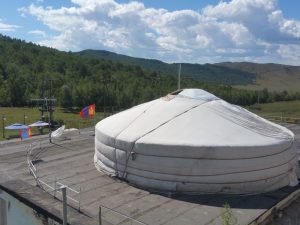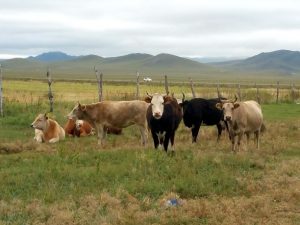To strengthen the dairy sector, a large world bank selected a consortium of Dutch and Mongolian companies. This consortium, lead by Bles Dairies’ consultancy discipline The Friesian, prepared a working plan for providing practical on-farm training and for developing manuals for commercial dairy farmers in Mongolia. Despite the potential to become an exporter of milk, Mongolia is a net importer due to low efficiency of milk production and lack of technical expertise. With only eight modern dairy farms producing high-quality raw milk, the number of dairy farms will need to increase more than a hundred-fold in the near future to meet the increasing demand for milk. There is a lack of knowledge and capacity on modern approaches to milk production and handling and processors buy raw milk without major quality considerations if suppliers can offer significant volumes. This discourages farmers from investing in higher quality production. This study aims to increase capabilities of farmers to produce more milk of higher quality, by transferring the know-how on modern approaches to milk production, handling, feeding, fodder production, cow health, food safety, hygiene, reproduction, as well as farm management and animal welfare.
The Friesian set up a training program to support their daily practices and management decisions. We provided in total 4 weeks of training to the Mongolian participating farmers. Besides we developed and administered practical, illustrated manual and handouts on milk production, including productivity, efficiency, food safety and animal welfare in English and Mongolian. In the explanations the Mongolian circumstances were taken into account as much as possible: cold winters and relatively little rainfall. Another component was a herd management software system, which we delivered to 3 selected farms for a trial period of 12 months.
The beneficiaries of the assignment were the local dairy producers, processors, consumers and traders active in the sector. Moreover, the training materials developed through this project also benefit other players in the dairy market in Mongolia.


